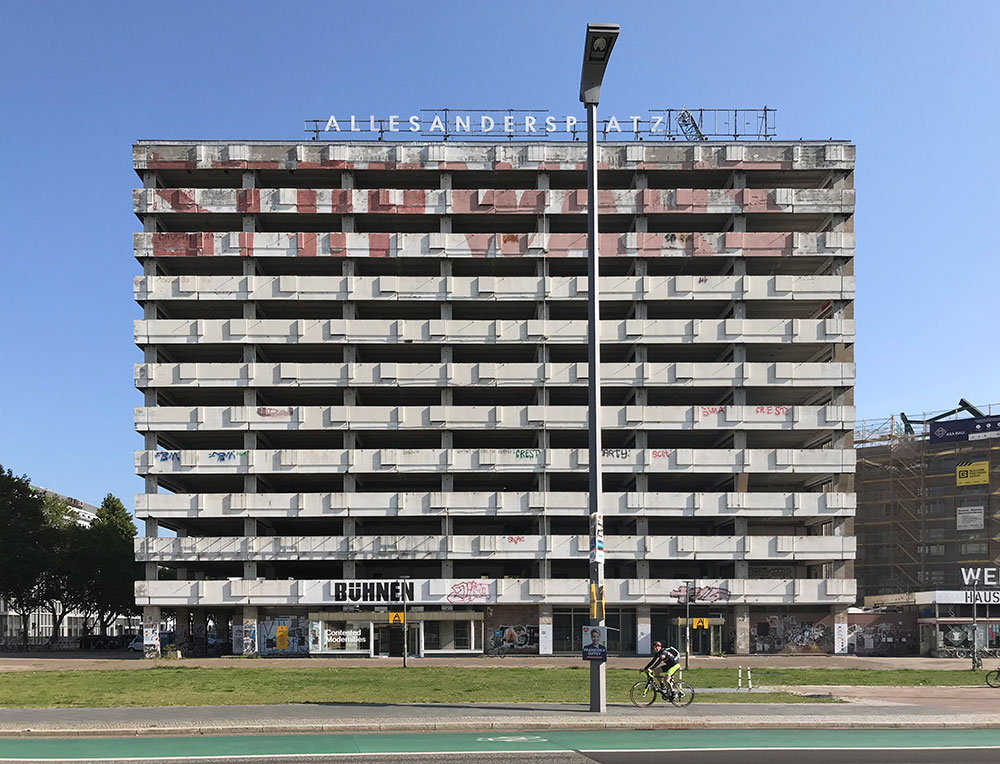Contested Modernities. Postcolonial Architecture in Southeast Asia

(German text below / Deutscher Text unten)
With the attainment of independence in the mid-20th century, the appearance of many cities in Southeast Asia changed. Hand in hand with the task of constituting a nation went the desire for a symbolic new beginning in architecture and urban planning. International modernism not only offered an aesthetic programme that reflected expectations of progress and prosperity, but also served as a means of emancipation from the colonial powers. With their knowledge of climatic building requirements in tropical regions and cultural specifics, local modernisms were created that shaped the image of the cities for years to come.
Today, rapid urbanisation processes, often politically motivated reassessments of local architectural history, and new usage requirements place the architectural legacy of this era of new beginnings under threat of demolishment or destruction through excessive conversions. Against this backdrop, the significance of postcolonial architecture in the region is increasingly thematized. This is accompanied by critiques of the widespread interpretation of modernism as an originally Western movement.
In Germany, the buildings of Southeast Asian modernism and the discussions about their preservation are barely known. Contested Modernities brings the Southeast Asian discourse to Berlin, where astonishingly similar discussions are currently being held about the architectural heritage of modernism.
Contested Modernities is part of the long-term programme Encounters with Southeast Asian Modernism, which launched in 2019 with exhibitions and events in Phnom Penh, Jakarta, Yangon, and Singapore. Five curatorial teams in the respective cities dealt in different ways with the significance of local architectural modernism. The exhibition brings together these contributions in Berlin. Documentary projects, interviews and artistic research works provide an exemplary insight into the debates as they are being conducted in the respective cities.
These contributions are supplemented by a look at the role of the two German states in the modernisation process of Southeast Asia during the Cold War. The exhibition section Poelzig’s Legacy and the Prefab in the Tropics: German Influences in Southeast Asia aims to take a novel look at planning and building activities with the participation of the Federal Republic of Germany and the GDR in some countries in Southeast Asia from the 1950s to the 1970s. In addition to the planning and building projects, it also deals with architectural education, which was influenced by figures such as Julius Posener.
Haus der Statistik (House of Statistics) as an exhibition venue establishes a direct link to the theme of the exhibition. Built as an administrative building in the centre of the city, it stood empty after German reunification and was scheduled for demolition. Thanks to civic engagement and an open-minded administration, this fate was averted. After its renovation, Haus der Statistik will serve as a model project combining cultural, social, and educational projects, affordable housing, and administrative uses in this special location.
In conjunction with the topics addressed by the contributions from Southeast Asia, Contested Modernities aims to open up a shared thought process that negotiates new perspectives on the perception and treatment of architectural modernism, both here and there.
Contested Modernities
Postcolonial Architecture in Southeast Asia
Mit der Erlangung der Unabhängigkeit Mitte des 20. Jahrhunderts wandelte sich das Erscheinungsbild vieler Städte in Südostasien. Hand in Hand mit der Aufgabe, sich als Nation zu konstituieren, ging der Wunsch nach einem symbolträchtigen Neubeginn in Architektur und Städtebau. Die Internationale Moderne lieferte das ästhetische Programm, in dem sich die Erwartungen an Fortschritt und Wohlstand spiegelten, und das gleichzeitig dazu diente, sich von den Kolonialmächten zu emanzipieren. Mit dem Wissen um klimatische Anforderungen des Bauens in tropischen Regionen und kulturelle Spezifika entstanden lokale Modernen, die lange das Bild der Städte prägten.
Rasante Urbanisierungsprozesse, eine häufig politisch motivierte Neubewertung der eigenen Baugeschichte und neue Nutzungsanforderungen führen heute dazu, dass die baulichen Zeugnisse dieses Aufbruchs abgerissen oder durch Umbauten zerstört werden. Vor diesem Hintergrund wird die Bedeutung der postkolonialen Architektur in der Region zunehmend thematisiert. Damit einher geht die Kritik an der verbreiteten Deutung der Moderne als originär westliche Bewegung.
In Deutschland sind die Bauten der südostasiatischen Modernen und die aktuellen Diskussionen um ihren Erhalt kaum bekannt. Contested Modernities bringt nun den südostasiatischen Diskurs beispielhaft nach Berlin, wo aktuell erstaunlich ähnliche Diskussionen um das baukulturelle Erbe der Moderne geführt werden.
Contested Modernities ist Teil des langfristig angelegten Programms Encounters with Southeast Asian Modernism, welches 2019 mit Ausstellungen und Veranstaltungen in Phnom Penh, Jakarta, Yangon und Singapur begann. Fünf kuratorische Teams setzten sich dort auf unterschiedliche Weise mit der Bedeutung der lokalen Architekturmodernen auseinander. Die Ausstellung führt diese Beiträge in Berlin zusammen. Dokumentarische Projekte, Interviews und künstlerisch-forschende Arbeiten vermitteln einen beispielhaften Einblick in die Auseinandersetzungen, wie sie in den jeweiligen Städten stattfinden.
Ergänzt werden diese Beiträge um einen Blick auf die Rolle der beiden deutschen Staaten im Modernisierungsprozess Südostasiens in der Zeit des Kalten Krieges. Der Ausstellungsteil Poelzigs Enkel und die Platte in den Tropen: Deutsche Einflüsse in Südostasien der Berliner Initiator:innen versucht zum ersten Mal eine Bestandsaufnahme planerischer und baulicher Aktivitäten mit Beteiligung der Bundesrepublik Deutschland und der Deutschen Demokratischen Republik in einigen Ländern Südostasiens von den 1950er bis 1970er Jahren. Neben konkreten Planungs- und Bauprojekten geht es auch um die Architekturausbildung, die von Akteuren wie Julius Posener beeinflusst wurde.
Das Haus der Statistik als Ausstellungsort stellt dabei einen direkten Bezug zum Thema der Ausstellung her. Errichtet als administratives Gebäude an zentraler Stelle der Stadt, stand es nach der Wende leer und war zum Abriss vorgesehen. Dank zivilgesellschaftlichem Engagement und einer aufgeschlossenen Verwaltung konnte dies jedoch abgewendet werden. Nach dem Umbau soll das Haus in Zukunft als Modellprojekt Kultur, Soziales, Bildung, bezahlbares Wohnen und Verwaltungsnutzungen an diesem besonderen Ort vereinen.
Im Zusammenspiel mit den Themen, die die Beiträge aus Südostasien präsentieren, möchte Contested Modernities einen gemeinsamen Denkprozess eröffnen, der neue Perspektiven der Wahrnehmung und des Umgangs mit der Architektur der Modernen hier und dort verhandelt.
Sally Below, Moritz Henning, Christian Hiller und Eduard Kögel

